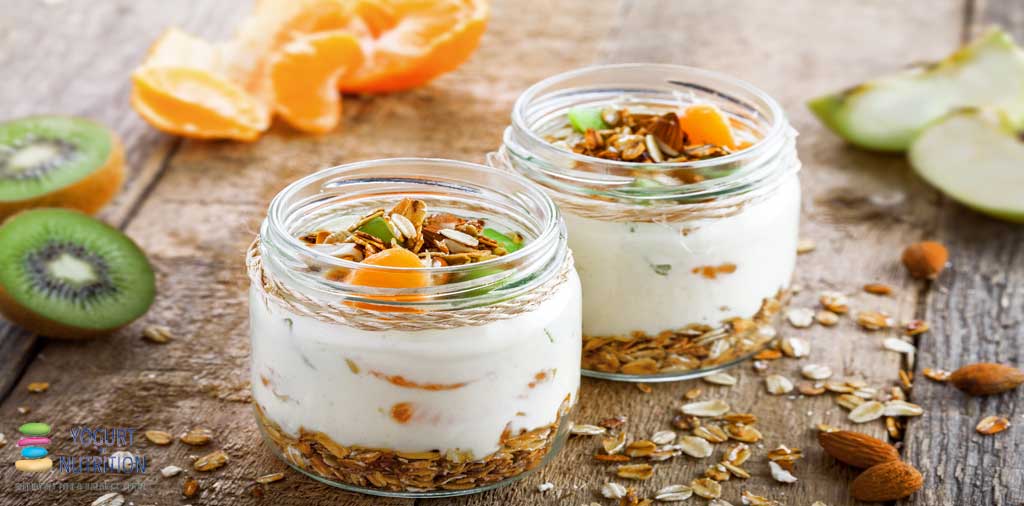Dairy products are naturally dense food but with a great heterogeneity within the products in the group. Some studies show that yogurt may be one of the most interesting…
Yogurt: a nutrient rich food?
The nutrient density is described as a measure of the positive nutrients provided per calorie of food. Nutrient-dense food provide a high proportion of positive nutrients relative to calories, helping people to meet their nutritional requirements without encouraging weight gain.
The US Nutrient-Rich Foods models (NRF) include beneficial nutrients as well as nutrients to limit. The final NRF9.3 index is based on 9 nutrients to encourage (protein; fiber; vitamins A, C, and E; calcium; iron; potassium; and magnesium) and on 3 nutrients to limit (saturated fat, added sugar, and sodium). Higher NRF9.3 scores is associated with lower energy density and more nutrient-rich diets.
Based on these evaluations, yogurt is qualified as a nutrient dense food within the dairy food group. Several studies have evaluate its contribution to global nutrient intake.
The contribution of yogurt consumption to global nutrient intake
A few years ago, a French research team (INRA) has examined how yogurt can fit into a nutritionally adequate diet.
Iso-caloric diets were designed from weekly diets observed in adults participating in a French national dietary survey (INCA). The modeled diet was built to meet a whole set of nutrient recommendations (proteins, lipids, carbohydrates, fiber, essential fatty acids, 10 vitamins, 9 minerals, sodium, saturated fatty acids, cholesterol, and free sugars) while deviating as less as possible from the observed food intakes. It showed that among seven main food groups, the quantities of three groups had to be increased to reach nutritional adequacy: dairies, fruit and vegetables, and starches and grains. It concluded with the need of a large increase of fruits and vegetables (to be increased by one third in both total diet weight and total energy intake). It showed also that rebalancing the intake of dairies in favor of the least energy-dense ones (i.e., yogurts and milk) will help individuals in this population reach nutritional adequacy.
In a same way, authors of the British Nutrition Foundation have analyzed the contribution of yogurt consumption to nutrient intake across the life course. It showed that yogurt makes a small but valuable contribution to nutrient intakes in young children, particularly for vitamin B12 riboflavin, calcium, iodine and phosphorus. As children aged, yogurt has a place in teen’s healthy eating plan for its contribution in several key vitamins and minerals. And finally, during adulthood, yogurt makes a great contribution to the women micronutrient intakes, providing more than 5% of the reference nutrient intakes for phosphorus, iodine, calcium, vitamin B12.
Source:
- Darmon N et al. Nutrient profiles discriminate between foods according to their contribution to nutritionally adequate diets: a validation study using linear programming and the SAIN.LIM system. Am J Clin Nutr; 2009; 89(4): 1227-34
- Maillot M et al; Individual diet modeling translates nutrient recommendations into realistic and individual-specific food choices; Am J Clin Nutr; 2010; 91:421-30.
- Clerfeuille E et al; Dairy products: how they fit in nutritionally adequate diets; J Acad Nutr Diet; 2013; 113: 950-6
- Drewnowski A, Fulgoni VL; Nutrient density: principles and evaluation tools; Am J Clin Nutr.; 2014; 99(5 Suppl):1223S-8S
- Williams EB et al. The contribution of yogurt to nutrient intakes across the life course, Nut. Bul; 2015; 40(1):9-32



